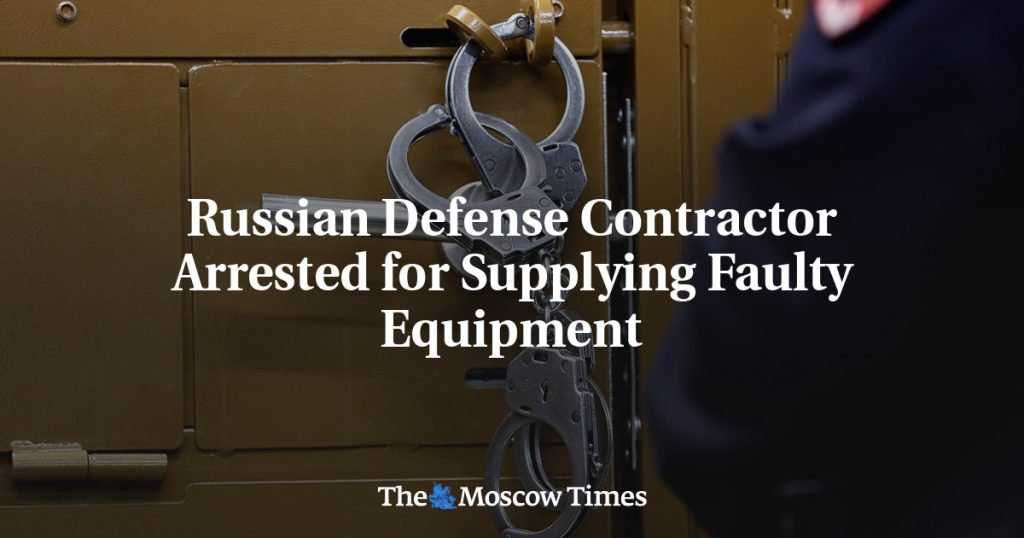The manager of a Russian defense contractor was arrested by Russian law enforcement authorities on accusations of defrauding the military by supplying substandard equipment. Vladislav Pylsky, who manages a subsidiary of the Siberian Navigation Company, allegedly provided the military with goods that did not meet technical requirements, resulting in a loss of 164 million rubles ($1.76 million). The specific faulty products were not specified, but reports indicated that the company supplied substandard drones. Pylsky manages EVR LLC, a company that manufactures aircraft, circuit boards, and communications equipment. He has been charged with large-scale fraud, which carries a maximum penalty of up to 10 years in prison.
The Russian defense sector has been under scrutiny in recent months due to a series of criminal investigations targeting companies contracted by the military and defense officials. These cases involve alleged fraud committed while fulfilling government contracts. In a separate incident, Major General Denis Putilov, responsible for overseeing armored vehicles in the Defense Ministry’s Central Military District, was charged with taking bribes and large-scale fraud. These developments indicate a wider issue of corruption and fraud within Russia’s defense industry, raising concerns about the quality of equipment being supplied to the military.
The arrest of Vladislav Pylsky is part of a broader crackdown on corruption within the Russian defense sector, with authorities seeking to hold accountable those who have allegedly defrauded the military. The government’s efforts to address corruption in defense contracts suggest a commitment to ensuring transparency and accountability in the procurement process. By holding individuals responsible for their actions, authorities are sending a signal that fraudulent practices will not be tolerated within the defense industry.
The cases involving Pylsky and Putilov are emblematic of the challenges faced by the Russian defense sector in terms of ensuring the quality and reliability of equipment supplied to the military. Substandard products not only pose a risk to national security but also result in financial losses for the armed forces. These incidents highlight the need for stricter oversight and monitoring of defense contracts to prevent fraud and ensure that the military receives goods that meet technical requirements and standards.
The allegations against Pylsky and other defense officials underscore the prevalence of corruption within Russia’s defense industry and the need for systemic reforms to address this issue. Efforts to combat corruption in the defense sector are crucial for maintaining the integrity and effectiveness of the military. By holding individuals accountable for fraudulent activities, authorities are working towards creating a more transparent and accountable defense procurement process that prioritizes the interests of national security.
Overall, the arrest of Vladislav Pylsky and the charges against Major General Denis Putilov represent ongoing efforts to address corruption and fraud within the Russian defense sector. These cases highlight the importance of holding individuals accountable for their actions and ensuring that the military receives quality equipment that meets technical requirements. As investigations continue and more cases are brought to light, it is clear that addressing corruption in defense contracts is a complex and ongoing challenge that requires a concerted effort from government authorities and industry stakeholders to uphold the integrity of the defense sector.


